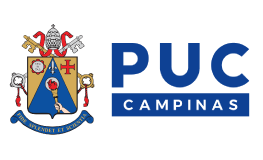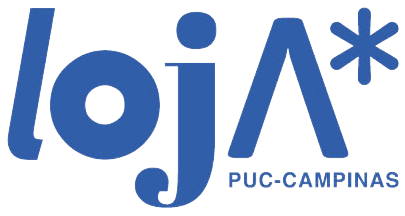Lines of Research:
- AGING, DISEASES, AND HEALTH HAZARDS
It addresses epidemiological, nutritional, pathophysiological, diagnostic, cognitive/behavioral, lifestyle (quality of life, spirituality/religiousness), and clinical/surgical therapeutic aspects in illnesses and chronic diseases. It develops studies on the distribution of diseases and related conditions in elderly populations and in the aging process, aiming to understand the dynamics of this process. It discusses the use of innovative technologies applied in the aging process for monitoring, prevention, aid, rehabilitation, and intervention for the elderly.
- CHILD AND ADOLESCENT HEALTH
It assesses child and adolescent health in an integrated way to find the relationship of epidemiological, nutritional, and pathophysiological aspects of infections and their biochemical, and lifestyle strands to diseases and health problems such as oral health and metabolic disorders. It also assesses how children and adolescents face the difficulties of the health-disease process.
Objectives
The Stricto Sensu Post-Graduation Program in Health Sciences has as main objective qualifying its students for research and teaching in an interdisciplinary approach to the Area of Health.
The objectives defined for the academic master’s degree are:
a) Capacitate teaching staff and researchers with broad, reflexive, and critical view in an interdisciplinary, biopsychosocial, and humanistic view of the health-illness process.
b) Capacitate teaching staff for acting in the intersection of various areas of higher education.
c) Qualify teaching staff and researchers for the innovative application of knowledge produced in the area.
d) Qualify for the elaboration of relevant research projects.
e) Apprize for the diffusion of scientific knowledge in the Country, along the academic environment, to other educational levels and the population.
f) Form a master capable of working in interdisciplinary teams and who is fit to form graduate students with such team work view, knowing how to use the scientific method.
g) Form a master with capacity for integration with graduation and for the involvement of students in scientific initiation.
h) Capacitate the egress from graduation courses from our University and also from Campinas Metropolitan Region and other regions in the Country.
i) Enable, on consistent basis, the expansion of the Interdisciplinary Post-Graduation in Health Sciences, aiming at the future constitution of a Doctor’s Degree Course in Health Sciences at PUC-Campinas.
The specific objectives are:
a) Stimulating the scientific and social development of the area of child and adolescent health and chronic grievances and illnesses.
b) Capacitating health professionals acting in the area of Health, in local and regional level, aiming at competent performance in research and capacitating of human resources.
c) Form a master with integration of knowledge and interdisciplinary experiences that overcome the perspectives from the specific areas from the program’s teaching staff.
d) Stimulating and developing the graduates’ scientific capacity in the area of health at PUC-Campinas, through the graduation/post-graduation integration, creating and developing the culture of active learning and knowledge production/disclosure, stimulating them to be more critical, reflexive, and fit to solve technical-scientific issues and capable of fully exercising their citizenship.
e) Broaden the spectrum of relations, intra and inter-institutional, enabling, through a critical process, the best use of the installed potential and contribute with knowledge and scientific production aimed at regional health issues.
f) Awaken on the post-graduate student the interest in research, to the point he/she is able to naturally include it on his/her professional life, for a process of constant acquisition of knowledge.
g) Improve the scientific-technological performance of the teaching staff from the Center for Life Sciences from PUC-Campinas and other local, regional, and national institutions acting in this area, aiming at their insertion in the process of production of knowledge and formation of human resources, in areas defined as priority by the Institution.
h) Turn the practice of research and formation of human resources into an essential and present component into the University’s activities.
i) Turn PUC-Campinas into a center for dissemination to the external community of the advancements verified in the area of health.
Target Audience
– Graduates in the area of health and areas alike.
Scholarship Modalities
a) PUC-Campinas/Rectorship: 50% exemption on tuition.
Curricular Structure
For the conclusion of the Master’s Degree in Health Sciences, aiming at the title of Master, a total of 32 credits are necessary, attributed as follows:
1) 02 mandatory disciplines of 03 credits, adding up to a total of 06 credits;
2) 04 elective disciplines of 03 credits, adding up to a total of 12 credits;
3) 03 modules of Advanced Research Seminars, all mandatory, adding up to a total of 06 credits;
4) Approval on Qualification Exam: at the end of the first year of the Master’s Degree course the student will have to submit his/her dissertation project to a Qualification Exam.
5) Dissertation: 08 credits.
Minimum duration of the Master’s Degree in Health Sciences is 12 and maximum 24 months.
Thus, the course progression is distributed as follows:
| 1st semester | 2nd semester | 3rd semester | 4th semester |
|---|---|---|---|
| Mandatory (1) | Elective (1) | Elective (3) | Guidance |
| Mandatory (2) | Elective (2) | Elective (4) | – |
| ARS (1) | ARS (2) | ARS (3) | – |
| Guidance | Guidance | Guidance | – |
History
Master’s Degree
The Academic Master’s Degree in Health Sciences – Medicine II was recommended by the Higher Education Technical Scientific Council – CTC/ES from CAPES/MEC, on 22 of December of 2014.








